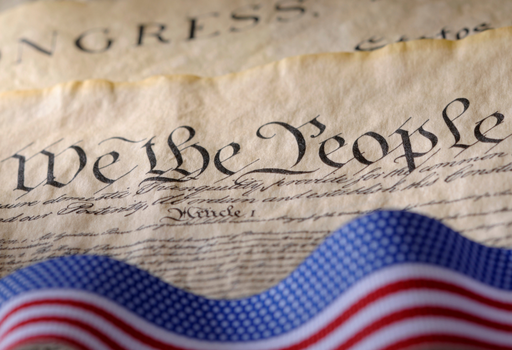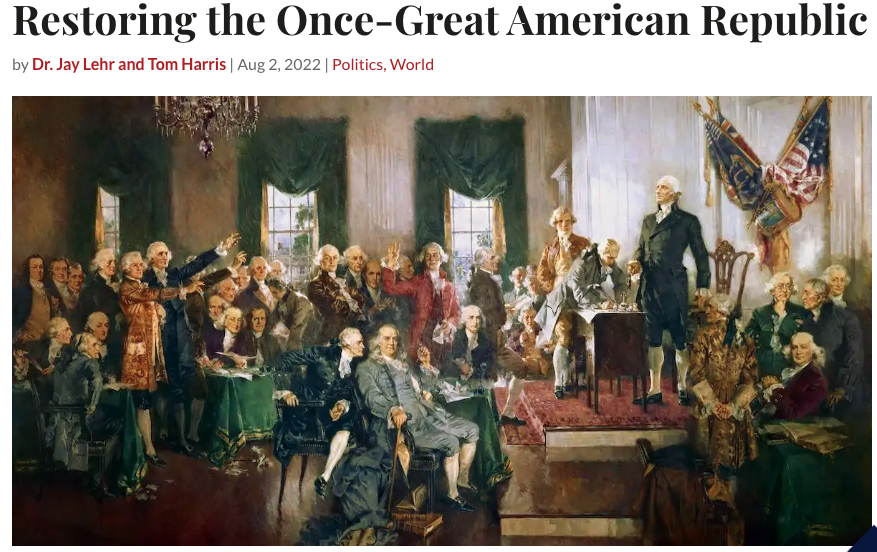Restore Our American Republic
Mission Statement
Restore Our American Republic (ROAR) was founded to restore the foundation of individualism in America. No structure whether it be a building or a system of ideas can long survive without a solid foundation. ROAR’s mission is to initiate political and cultural reform for the purpose of restoring the foundation of individualism in America.
***
For many years and especially in the past decade a culture war has been gradually intensifying across America. It is the outward expression of two irreconcilable views:
- pro-individual (life, liberty, and pursuit of happiness) versus
- anti-individualist ideologies that wish to: subjugate the rights and happiness of individuals to a centralized unelected authority.
Unfortunately, in recent years public health authorities at both the national and international level have indicated their desire to re-engineer society and attack our foundation of freedom and the foundation of individualism is rests on:
Ministers of health should take advantage of the devastating impact to get out the message that “changes in the functioning of the global economy” are needed to “distribute wealth” on the basis of “values such as “community, solidarity, equity, and social justice. — World Health Organization Director Margaret Chan, 2009
“Living in greater harmony with nature will require changes in human behavior as well as other radical changes … Chief among them are reducing crowding at home, work, and in public places as well as minimizing environmental perturbations – Dr. Anthony Fauci, August 2022
“Distributing wealth” and “Living in harmony with nature” are NOT matters of public health. They are ideological positions and are the driving motivations of enormously destructive policies such as lockdowns, mandates, and demands for universal vaccination.
These are policies being forced upon the American people using alarmism concerning a disease, COVID-19, that 99.9% of the people who contract it, recover from. In short, our public health officials and other government officials are not being transparent with the American people about their true intentions. In addition, other national and international organizations / globalists are acting to cause great harm to America and the world, e.g., Pharmaceutical companies, the World Economic Forum, and the United Nations, among others.
***
To counter this threat ROAR has initiated a five-part project to restore America’s freedom and prosperity. It will include an ebook Restoring Our American Republic: Why We Need it; How we get it. The purpose of the project is to get to the bottom of what is causing our cultural malaise and to provide a principled, practical action plan to restore the tradition and practice of personal liberty as the guiding principle in our cultural / political affairs.
For a summary of the project’s goals and methods please click HERE.
Toward that end, America Out Loud senior scientists Dr. Jay Lehr and Tom Harris generously invited me to participate in a lively and enlightening discussion on this topic. Our discussion recorded on August 4, 2022 and titled, “The Fight to Preserve Individual Freedom” is now available on the America Out Loud website under “The Other Side of the Story.” To listen to the podcast, please click HERE.
Our podcast is accompanied with an essay elaborating on the issues involved. The essay is titled: “Restoring the Once-Great American Republic”.
My hope is after reading Dr. Lehr and Tom Harris’ essay, “Restoring the Once-Great American Republic” and listening to our discussion on the America Out Loud website at “The Fight to Preserve Individual Freedom” – you will want to know more about ROAR’s upcoming project, Restoring Our American Republic: Why We Need it; How we get it.
To receive periodic updates on its development, please provide your contact information in the form below. After providing your contact information, please press HERE to receive your complimentary copy of our previous work Solving America’s Greatest Conflict: The Public Interest vs. Private Rights. That publication will provide you with an excellent introduction to the key issue, i.e., misuse of the public interest principle that has
entrenched an anti-individualist ideology in our scientific research institutions and public health agencies culminating in the authoritarian overreach we have been subjected to during the COVID-19 pandemic.
If you have any questions concerning our upcoming publication, Restoring Our American Republic: Why We Need it; How we get it, please contact us at info@restoreouramericanrepublic.org.
– Mike Gemmell, founder and president, Restore Our American Republic, LLC

Restoring Our American Republic: Why We Need it; How we get it will show how systemic corruption in the public health community and government agencies developed over a period of decades culminating with the massive authoritarian overreach occuring during the COVID-19 pandemic. That response is part of a larger international cultural trend intended to
cede the rights of Americans to an unnamed, unelected authority as part of a cultural phenomenon known as “The Great Reset.“
Restoring our American Republic… will show how this trend — and the attack it represents on America’s individualist foundation — can be reversed by framing reform proposals in terms of fundamental personal values that achieves transparency on the part of all interested parties. The achievement of transparency on all parties will help bring to light existing arbitrary and/or contradictory elements in existing or proposed policies that can then be reformed to be consistent with America’s foundation of liberty and personal freedom.
Books & Publications that
Put ROAR’s Mission Into Action
How to STOP the LOSS of Freedom in America and RESTORE Your RIGHTS
Solving America’s Greatest Conflict:
The Public Interest -vs- Private Rights

- Society as a whole is not a living entity; it is an abstraction, or concept.
- Society does not experience, feel, or think, only individuals within a society can do that.
- Because society as a whole is not alive, it cannot have interests or moral status.
- Rights, interests and moral status can only be protected for individuals, not societies.

Mike Gemmell is the founder and president of Restore Our American Republic (ROAR). ROAR’s mission is to initiate political and cultural reform for the purpose of restoring the foundation of individualism in America.
For those interested in my motivation behind the founding of ROAR, please see “Why I Fight to Restore the American Republic.” And for those who would like to know more about the path I followed to my present philosophical/ political perspective, please see “My Journey from Traditional Environmentalism to a ‘People First’ Environmental Perspective.” – Mike Gemmell
